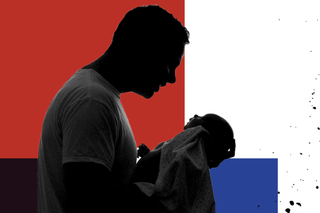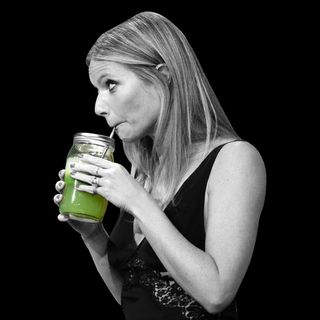
Fathers Who Are Involved in Caring for Their Infants May Experience Better Mental Health: Study
The findings help make the case for paid paternity leave, the researchers say.

Men who are involved in parenting and caretaking tasks early in their child’s infancy have better mental health during their child’s first year of life, according to a new study published in Frontiers of Psychology.
The researchers say the findings help make the case for mandatory, paid paternity leave, which would allow men the time and resources to care for their children from birth.
The study of more than 800 low-income men in the U.S., across the first year of their children’s lives, found spending more time with their infants promoted feelings of competency at parenthood and childcare — feelings which correlated with fewer symptoms of clinical depression during the same period. While the researchers also found fulfilling the role of provider, by providing money or material goods for their child, was integral to most fathers’ identity, it was not linked to better mental health. Rather, men who were less able to contribute financially to their child’s well-being experienced low self-esteem, which may have contributed to depressive symptoms.
Ultimately, competence gained by spending time caring for their infants was the only factor protective of mental health. However, the researchers note it’s not necessarily causative: while less confidence in one’s parenting could lead to depression, depression could also reduce one’s confidence in parenting ability.
Related on The Swaddle:
Nearly as Many New Dads Likely to Get Postpartum Depression as New Moms
“In general, I think there are two big takeaways. First, involvement with your child is not only better for the child, but it’s also better for the dad. So, dads, get involved with your kids early and often,” Olajide N. Bamishigbin, Ph.D., an assistant professor of psychology at California State University, Long Beach, told PsyPost. “Second, I think it is important for everyone to understand that paternal depression is a serious issue that requires attention. It affects fathers thereby impacting the entire family. So, it’s important that we take it seriously.”
Bamishigbin’s first conclusion runs counter to the widespread Indian tradition of post-birth confinement for mother and child, during which fathers often playing a peripheral role. The absence of a paid paternity leave mandate in India also sees most fathers returning to work within days or even hours of the birth of their child and therefore unable to engage much in infant care tasks. This not only keeps the burden of infant care on mothers (to the detriment of women’s mental and physical health) but also potentially jeopardizes men’s mental health.
Bamishigbin’s second conclusion fits within growing attention to the effects of parenthood on men and how such impacts challenge long-held assumptions that women are the only ones to change after the birth of a child. A landmark 2015 study found the more time men spent caring for their child, the more active their amygdalae were — on par with mothers’ amygdalae activity; the amygdala is the part of the brain that regulates emotions and parent-child bonding. Additionally, recent studies have found hormonal changes in new fathers can also be a factor in paternal postnatal depression, which occurs in men at almost the same rate as postpartum depression occurs in women.
Future research “should examine the time periods when fathers are most likely to be depressed so that interventions can be developed, and the physical health effects of paternal depression in fathers,” Bamishigbin tells PsyPost. Already, a handful of studies have looked into what could help fathers be more involved, as well as what could lead them to withdraw from infant care. Arguably, gender inequality starts at home, driven by gender norms that confine mothers but also fathers into rigid roles. Therefore, gender equality can start at home, too — and this study provides a clearer picture of the benefits men stand to gain if they invest in equal parenting.
Liesl Goecker is The Swaddle's managing editor.
Related


NHS Doctor Shuts Down Gwyneth Paltrow’s Long Covid Healing Practices, Such as Herbal Cocktails, Infrared Sauna
